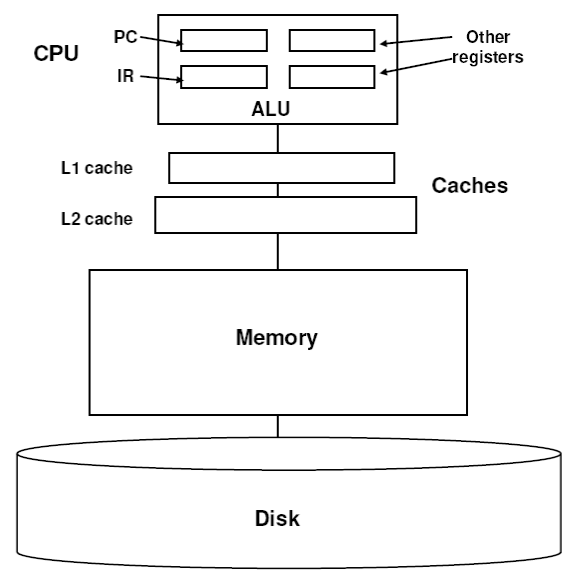CS 2150 Roadmap
Data Representation | Program Representation | |||||
| string int x[3] char x 0x9cd0f0ad 01101011 |
 |
Objects Arrays Primitive types Addresses bits |
Java code C++ code C code x86 code IBCM hexadecimal |
 |
High-level language Low-level language Assembly language Machine code |
|
Memory Allocators
| Lifetime | |||
|---|---|---|---|
| Scoped | Unlimited | ||
| Size | Known | local variable declarations | global, static variable declarations |
| Unknown | alloca() | new & malloc() | |
alloca(): like malloc(), but on the stack, not the heap (rarely used)
x86 callee epilogue
|
How would this change with alloca()?
Memory Hierarchy, part 1

|
|
Memory Hierarchy, part 2

|
|